

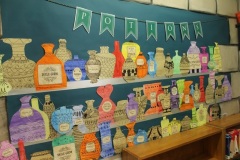
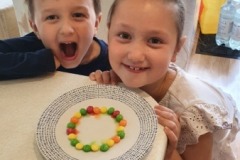
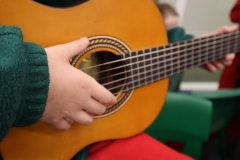
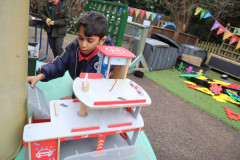

At Farnborough Primary School, we believe that both written and oral communication is the key to educational success. We aim to equip our children with the skills, knowledge and experiences they need to use language effectively.
We strive to instill in children a love of stories, books and language from a very young age. Children are read to regularly, all the way through primary school. Teachers discuss books with pupils and share their love of literature.
Alongside exposure to a wide range of reading material, pupils are taught formally to read using phonics. Other reading strategies, such as using picture cues and reading for meaning, are also introduced. Pupils are also taught a range of ‘tricky words’ which cannot be decoded using phonics. In this way they gradually develop a bank of vocabulary they know by sight.
We at Farnborough endeavour to ensure that all of our children experience the range of books set out below:
To view the full range of reading expectations in EYFS, KS1 and KS2, please click on the thumbnails below:
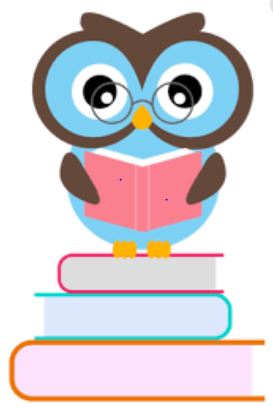 The school uses the Bug Club phonics programme which starts with Phase 1 in Nursery and continues into Reception and Key Stage 1 (Years 1 and 2). Initially children learn to listen attentively for sounds and rhythms and then they begin to learn the sounds of single letters. They learn to blend these sounds into words (for example h-a-t would make hat). Children are taught how to decode and segment sounds in words in order that they can read and write more efficiently.
The school uses the Bug Club phonics programme which starts with Phase 1 in Nursery and continues into Reception and Key Stage 1 (Years 1 and 2). Initially children learn to listen attentively for sounds and rhythms and then they begin to learn the sounds of single letters. They learn to blend these sounds into words (for example h-a-t would make hat). Children are taught how to decode and segment sounds in words in order that they can read and write more efficiently.
We continue to use the Bug Club programme throughout Key Stage 1 (Years 1 and 2), working systematically through the different stages, up to Phase 6. By this time children will have developed a secure grasp of complicated letter strings which enables them to decode two and three syllable words. Reading evolves from learning to read, to reading to learn. Phonics lessons are taught every day and each day the children learn or revise a new sound. Children are placed in groups depending on their stage in phonics development; this enables children to move on to new sounds and letter patterns if they are ready, or to revisit sounds and letter patterns to ensure their knowledge is embedded.
Some children will receive additional phonics support if we feel that this will be of benefit.
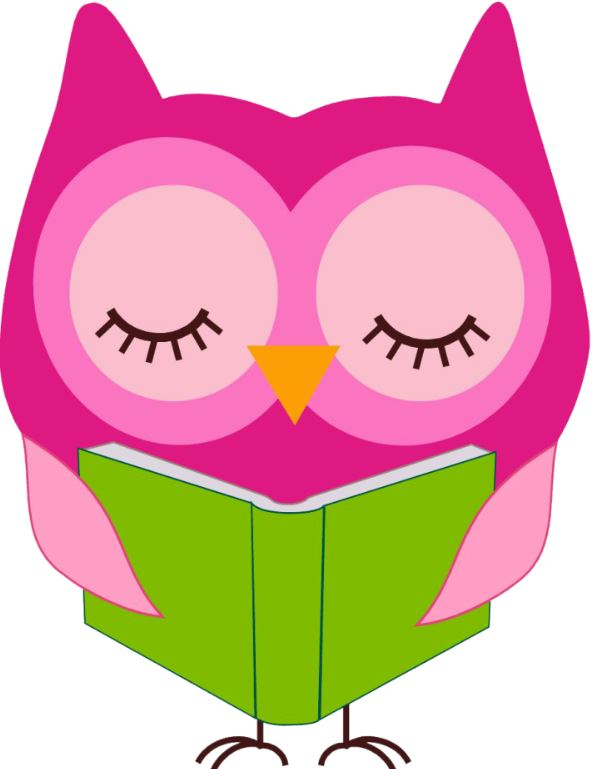
The school uses the Bug Club scheme as the main resource for teaching reading which is supplemented with other scheme books and ‘real’ books (books that are not written specifically to help develop children’s reading). We believe that children need exposure to a variety of reading material to appeal to their different learning styles. Reading in class may sometimes be on screen, using the interactive whiteboard or computer.
At the early stages of reading development, the children initially use books without text and progress to books that are linked to the phonics sounds that they are learning. Children progress through the reading scheme at their own pace; they do not need to read a certain number of books in each stage before moving on to the next level. When it is felt that a child is ready, they become a free reader. Pupils will then read ‘real’ books chosen from the class library.
Pupils are grouped for Guided Reading with other pupils who are at a similar stage in their reading development. Each group reads with the teacher at least once a week. Additional one-to-one reading support is delivered by teaching assistants and parent volunteers where appropriate. Children are also read to on a frequent basis to familiarise them with story language and ideas for their own writing.
As pupils move through the school they are encouraged to read a rich variety of good quality reading material, which includes a mixture of classic and modern literature, as well as non-fiction texts. Comprehension becomes the focus for reading; pupils are taught to read for meaning and to develop their skills of inference and deduction.
Children are encouraged to read at home as frequently as possible and parents and carers are asked to record their reading in the child’s home/school diary. Teachers also record pupils’ reading in the home/school diary.
Book Week is a long established tradition at Farnborough Primary School and this annual celebration of reading helps to promote a love of literature. Our annual Book Character Day always presents a fantastic array of much-loved fictional characters, with staff and pupils equally creative in their costume designs!
Storytellers and authors visit the school at this time and we always host a book fair.
Please choose from the options below: